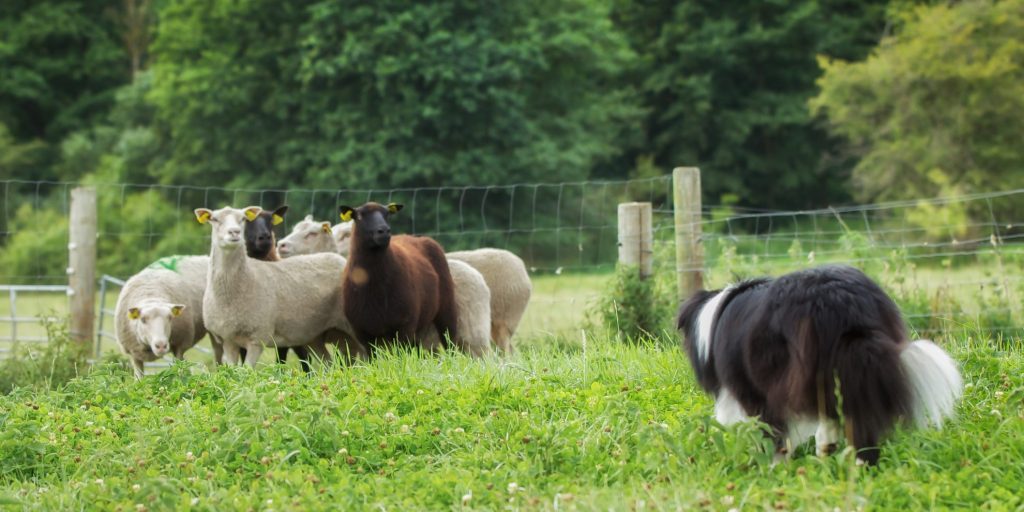Are Dogs Really As Clever As We Think?
A study by researchers from the University of Exeter and Canterbury Christchurch University, calls into question emerging ideas about the intelligence of dogs. Holidays4Dogs investigates the question of – are dogs really that clever?
In 2018, findings about canine intelligence were published in the Journal ‘Learning and Behaviour’ – entitled; “In what sense are dogs special?” Researchers from the two universities had not aimed to re-evaluate canine cognition in its entirety but, crucially, to set the subject of canine intelligence into context. They came to the conclusion that dogs aren’t necessarily too clever.
The researchers wanted to establish whether the cognitive abilities of dogs are as special as others have claimed. They point out that canine cognition, needs to be framed within other studies from similar groups.
Thus, comparative studies would include findings from work with social, carnivorous, domestic animals – rather than chimpanzees, for instance.
Many people with an interest in human and canine behaviour will, no doubt, have heard of Pavlov. In 1927, Pavlov’s research involved the salivary response in dogs. Initially, Pavlov was looking into salivation in the dogs.
However, he noticed that whenever he went into the room, even if he was not bringing the dogs food, they would salivate.
Pavlov came to realise the dogs learned to associate food with secondary things such as a lab assistant. He concluded he had made a significant scientific discovery. This discovery is now known as, classical conditioning.
However, studies such as Pavlov’s do not prove how clever dogs are and findings are more associated with evolutionary factors. Other studies into canine cognition, however, do aim to establish the intelligence of dogs.
Dogs are dogs.
Studies have found, for example, that while dogs are capable of following the track of a pointed finger, chimpanzees cannot. But does this really mean that dogs are exceptionally clever or, intelligent?
There are many studies that go further and draw comparisons between dogs and human toddlers, for example. However, researchers from Exeter and Canterbury Christchurch universities claim that these sorts of comparisons do not truly put a dog’s intelligence in fair context.
Indeed, Dr Britta Osthaus of Canterbury Christchurch University states;
“taking all three groups (domestic animals, social hunters and carnivorans) into account, dog cognition does not look exceptional”.
He goes on to point out;
“we are doing dogs no favour by expecting too much of them. Dogs are dogs and we need to take their needs and true abilities into account when considering how we treat them”.
Intelligence comes in many forms.
There are many factors associated with a dog’s intelligence. Sociability (how well they took to socialisation), problem solving skills and also breed, can all impact on how ‘intelligent’ a dog might seem. Dogs are really good at reading body language and they’re pretty clever at learning verbal words too.
A Border collie named ‘Chaser’, for example, was capable of recognising the names of over 1,000 objects. Dogs also have a basic understanding of numbers and recognise quantity – so they know when they’ve been short changed on the dinner front!
According to Stanley Coren there are three types of dog intelligence. The first is instinctive intelligence which refers to what the dog was bred for. For example, Border collies have been bred to herd sheep, toy dogs to be hot water bottles! Herding doesn’t take much in the way of human direction in order for them to carry out the behaviour out. On the other hand, dogs long bred as companion pets, crave connection and input from their human caretakers.
second we have adaptive intelligence. This involves a way of problem solving by learning from experience. Dogs who excel in obedience or agility competitions, or are good at finding treats – have adaptive intelligence.
Finally, we have working and obedience intelligence. This encompasses skills a dog can learn by taking instructions and directions from human beings.
Conclusion.
There is no doubt that dogs are certainly unique. Many of us believe our dogs are truly clever, for all sorts of anecdotal reasons.
dogs are truly clever, for all sorts of anecdotal reasons.
But, we already know dogs have a huge capacity to learn very complex skills – from seizure alert dogs to police sniffer dogs. Without doubt, dogs are eager to please and are capable of learning new skills and activities.
As caretakes, we can go a long way to developing a dog’s cognitive abilities with positive socialisation and training.
Despite the question over comparisons and the intelligence of dogs themselves, research using dogs, has meant there has been a greater understanding of non-human animals in general.
In addition, it raises interesting insights into the impact that non-human species have on people.



